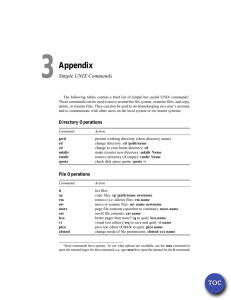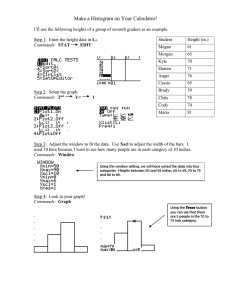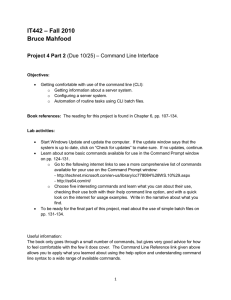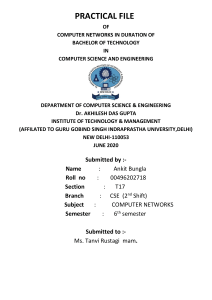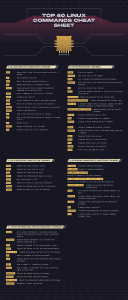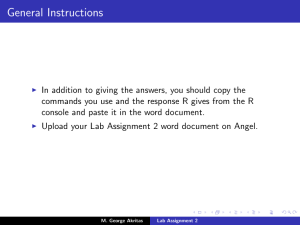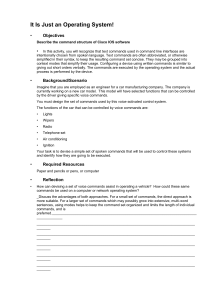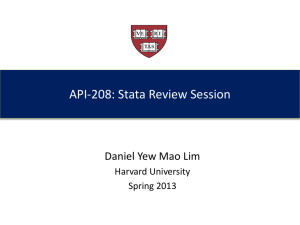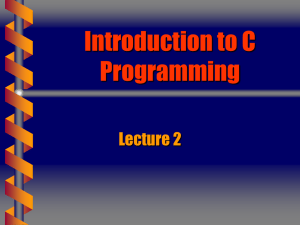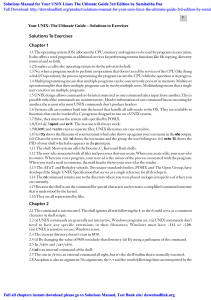IT244: Introduction to Linux/UNIX – Fall 2010 Homework 3
advertisement
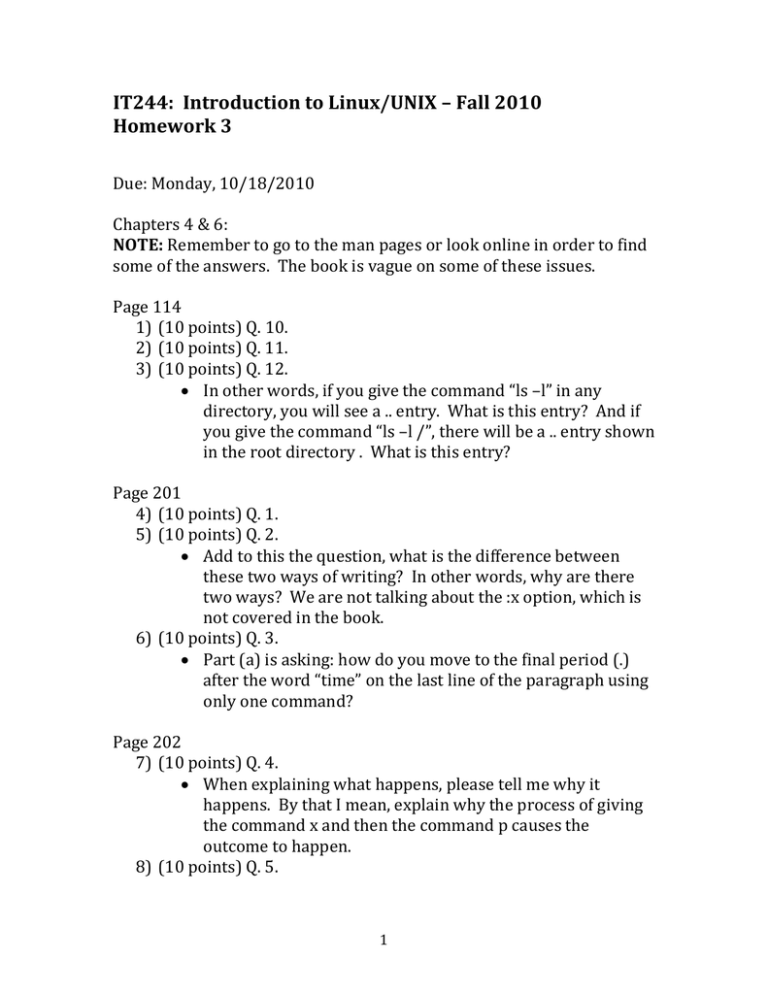
IT244: Introduction to Linux/UNIX – Fall 2010 Homework 3 Due: Monday, 10/18/2010 Chapters 4 & 6: NOTE: Remember to go to the man pages or look online in order to find some of the answers. The book is vague on some of these issues. Page 114 1) (10 points) Q. 10. 2) (10 points) Q. 11. 3) (10 points) Q. 12. In other words, if you give the command “ls –l” in any directory, you will see a .. entry. What is this entry? And if you give the command “ls –l /”, there will be a .. entry shown in the root directory . What is this entry? Page 201 4) (10 points) Q. 1. 5) (10 points) Q. 2. Add to this the question, what is the difference between these two ways of writing? In other words, why are there two ways? We are not talking about the :x option, which is not covered in the book. 6) (10 points) Q. 3. Part (a) is asking: how do you move to the final period (.) after the word “time” on the last line of the paragraph using only one command? Page 202 7) (10 points) Q. 4. When explaining what happens, please tell me why it happens. By that I mean, explain why the process of giving the command x and then the command p causes the outcome to happen. 8) (10 points) Q. 5. 1 9) (10 points) Q. 6. Again, this is a single command 10) (10 points) Q. 7. Make sure that you substitute every occurrence, even multiple occurrences on the same line. 11) (10 points) Q. 8. – Extra Credit Here you have two scenarios, and two different command possibilities. The first scenario is that you haven’t yet saved your changes using :w. In this case, both commands are possible to be used here. In the second scenario, you saved your changes and then realized you had made this mistake, but the good thing is that you haven’t yet quit out of vim. In this case, you have one of the commands as a possible fix. Give both commands and tell what the difference is. 2
